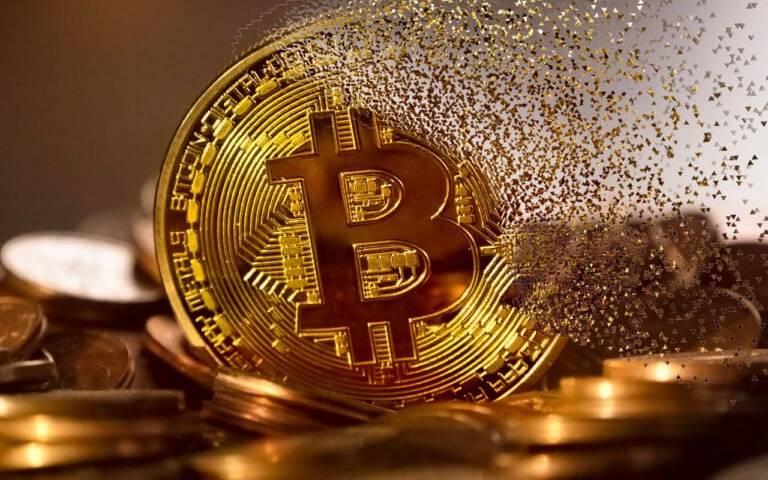-
Decentralized finance or “DeFi” allows users to participate in traditional financial activities such as lending but without any middlemen involved.
-
Regulators are concerned about DeFi services marketing themselves as decentralized when that may not be the case.
The rapidly growing decentralized finance industry may be about to wake up.
Decentralized finance, or “DeFi” as it is commonly known as the cryptocurrency trend, first began to gain traction in 2020.
It’s called the “Wild West” of cryptocurrencies – where computer programmers are trying to bring traditional financial products like loans onto the blockchain.
This idea sounds promising. In theory, anyone can lend and borrow digital currency at competitive interest rates, with no middlemen involved. Investors are attracted by the promise of a double-digit percentage return on savings with certain digital tokens.
But with major hacks and scams raging in the space this year, regulators are increasingly worried about the risk of crime as well as harm to consumers.
“I think they will pay more attention to this space,” Sid Powell, co-founder of DeFi lending platform Maple Finance, told CNBC.
According to data from The Block, nearly $90 billion has been deposited into Ethereum-based DeFi protocols to date.
“It may be unthinkable that you have meaningful development of DeFi without having to add existing regulation going forward,” said Powell.
Regulators have begun to take a tougher approach to the crypto industry.
Many countries have tried to launch Binance, the world’s largest cryptocurrency exchange, to operate without their permission. Since it has no official headquarters, Binance has so far managed to avoid scrutiny – although the company says it now wants to be a friend, not an enemy, to regulators.
Meanwhile, Coinbase in September got into a bitter fight with the U.S. Securities and Exchange Commission over a planned interest-earning savings product, which the regulator felt looked too much like a security. securities. Coinbase later dropped plans to launch the feature.
And just this week, a long-awaited US government report called on Congress to regulate stablecoins, digital assets pegged to traditional currencies like the dollar. to maintain a stable value.
Now, DeFi seems to be next in line.
Earlier this year, the Wall Street Journal reported that the US Securities and Exchange Commission was probing decentralized cryptocurrency exchange Uniswap, with officials seeking information on how investors are using the platform. platform and how it is marketed.
In September, US Currency Controller Michael Hsu likened DeFi’s activity to the controversial Wall Street activities that led to the 2008 financial crisis.
“One of the biggest questions facing regulators right now is how to deal with DeFi,” said David Carlisle, director of policy and regulatory affairs at crypto analytics firm. Elliptic death, told reporter.
“How do you apply regulatory standards designed for intermediaries that focus on the world of some market with no apparent centralization?”
Carlisle said one source of concern for regulators is that DeFi services market themselves as decentralized when that may not be the case. “We see a number of scenarios where the founding teams and developers have established protocols that influence the governance of a DeFi network.”
Last week, the global anti-money laundering watchdog, the Financial Action Task Force published revised guidance on cryptocurrencies. Part of the rule calls for states to identify individuals who have “sufficient control or influence” over DeFi schemes.
That means some DeFi startup founders are likely to be subject to rules that require them to provide information about the originator and the beneficiary of the transfer.
Rick McDonell, a former FATF executive secretary, told CNBC: “While DeFi protocols can provide similar functionality in financial transactions, they hardly introduce any oversight. required by regulators to ensure safe and efficient financial markets.
“The lack of effective oversight creates significant risks to fraud, money laundering, sanctions evasion and other criminal activities in these markets.”
As for what regulators will do in response, McDonell said it’s too early to tell.
“While it is possible to read the tea leaves about the possibility of applying regulatory measures, that response may require detailing,” he said. “But some enforcement action has been taken.”
“Regulators have made two things clear: they support the benefits blockchain technology can bring to end users, but they are not ready to trust the ability to manage financial-crime risks of the industry.”
